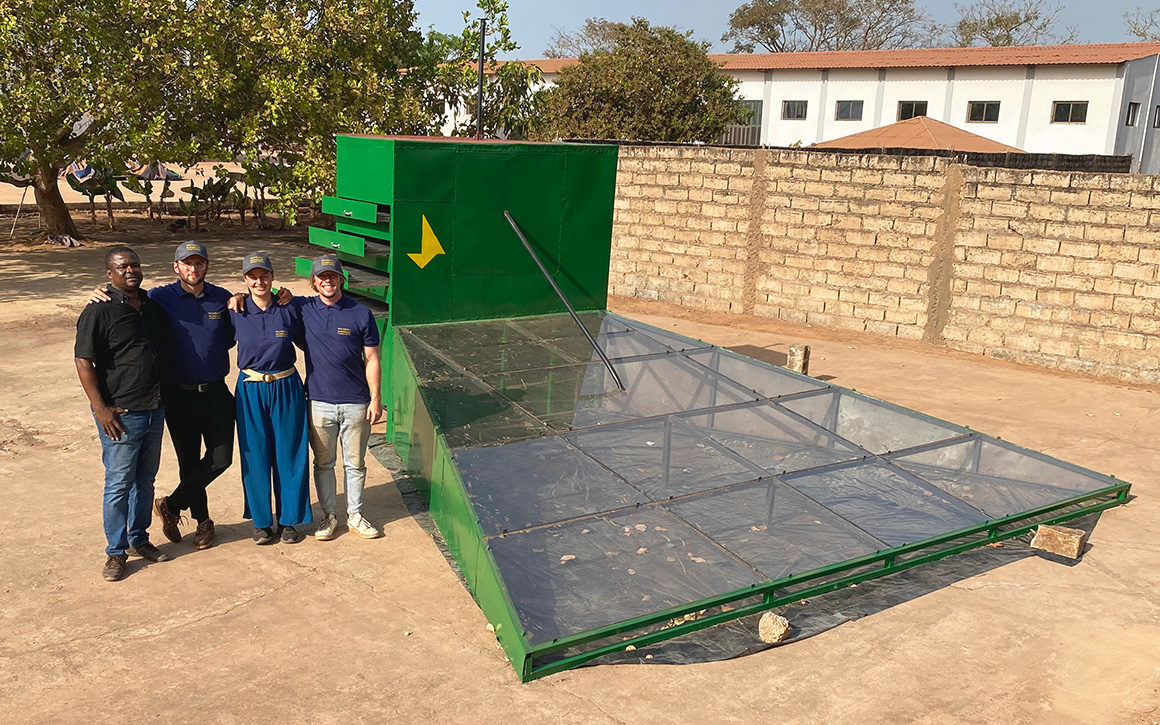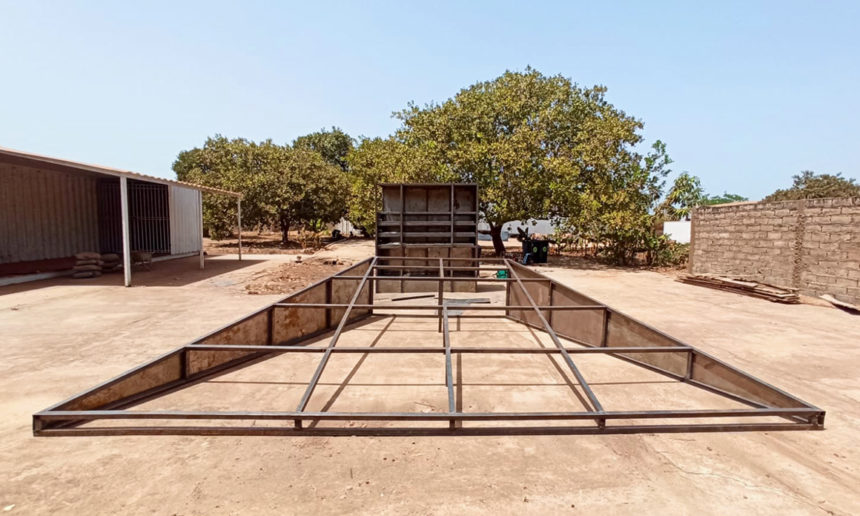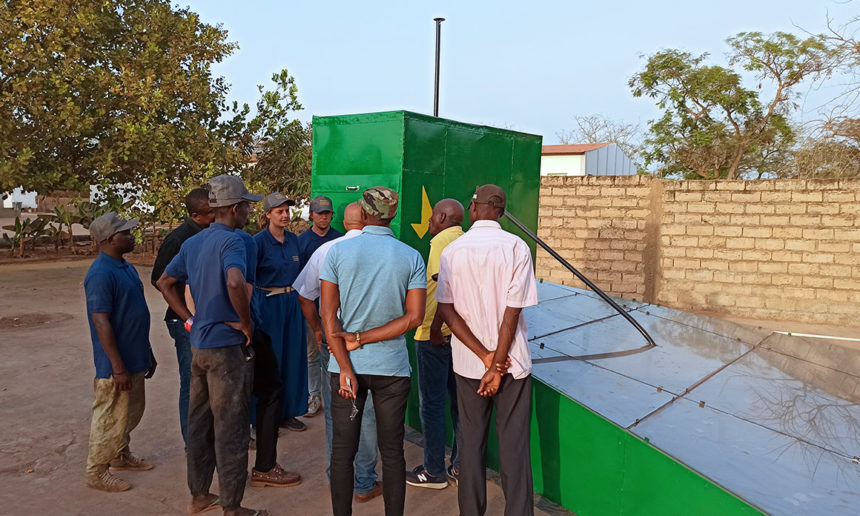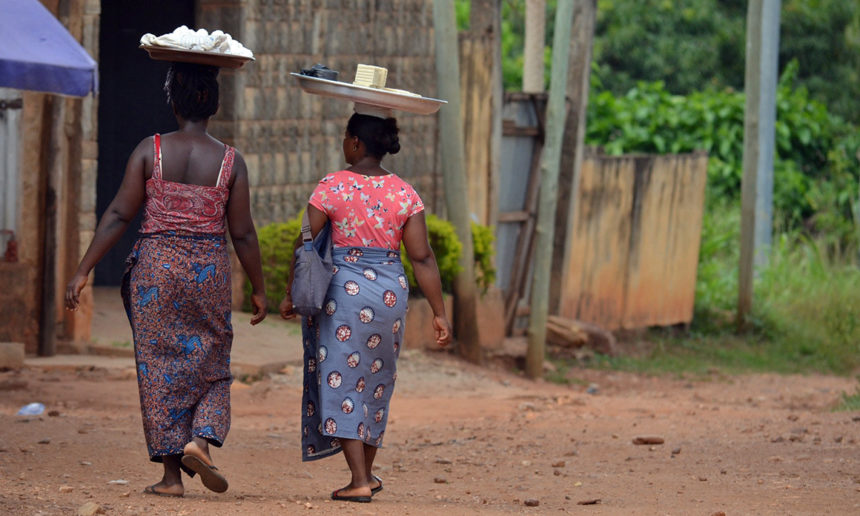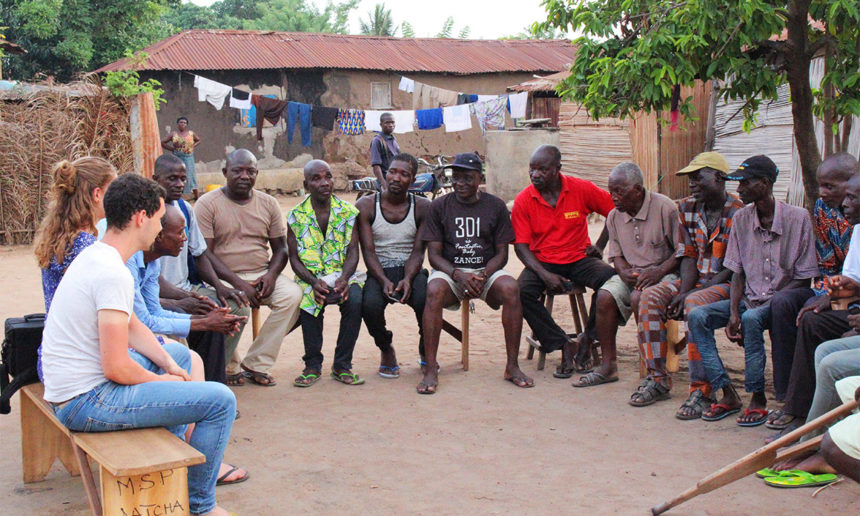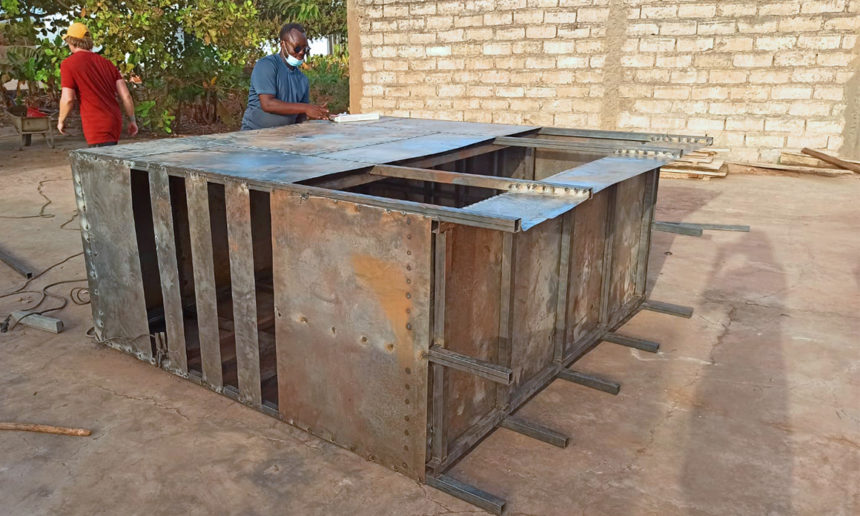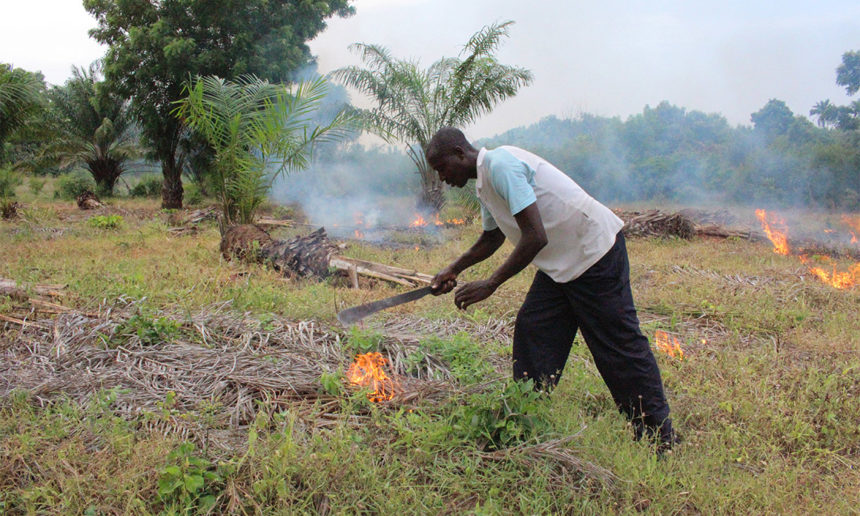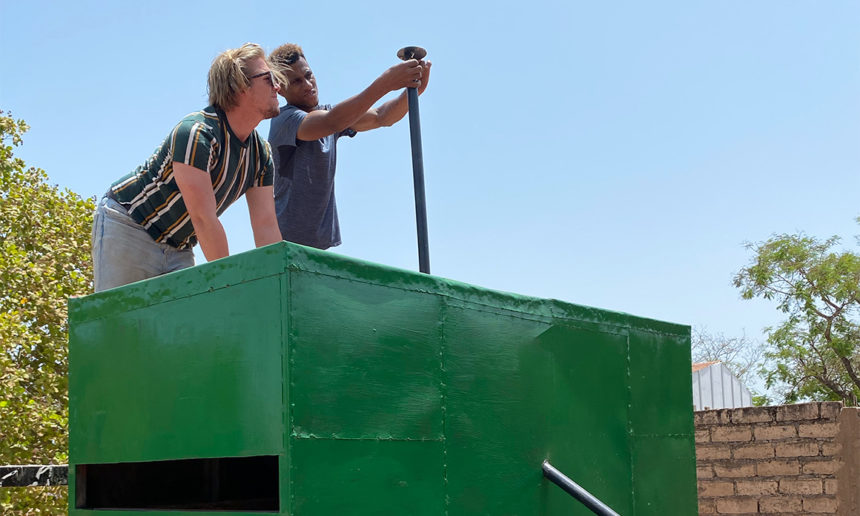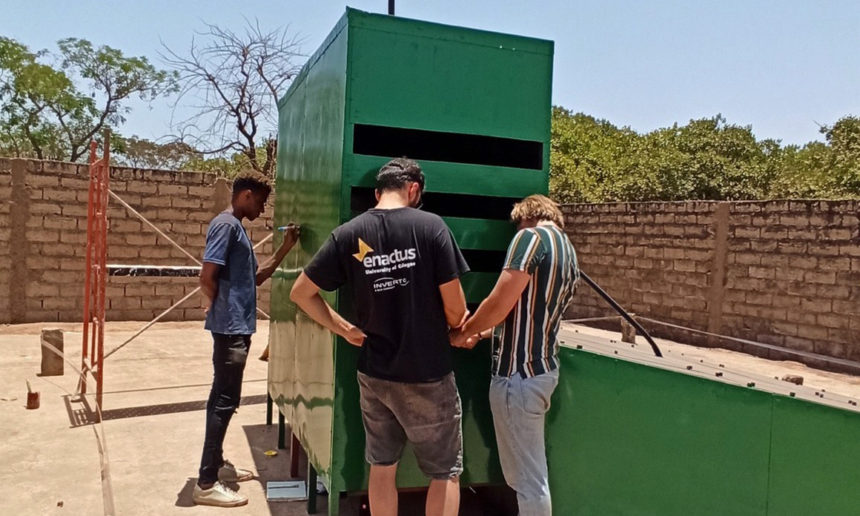Empowering smallholders to better preserve their crops in order sell when the demand is highest
The student non-profit initiative Save the Grain from the University of Cologne has developed a simple dryer powered solely by solar heat, which is used in Togo and Guineau-Bissau in West Africa. It can be used to dry agricultural products such as maize, cassava or even mangoes and store them safely in airtight bags all year round. The dryers solve two problems:
- They increase the availability of elementary foodstuffs. Especially in smallholder production, up to 25% of the harvest is often lost due to the lack of safe storage.
- They solve the dependency on middlemen who dictate the prices. The farmers regain control and can sell their harvest when good prices are achieved. This is usually not immediately after harvest, when there is an oversupply.
Building drying plants is not a fundamentally new idea. However, there is a lack of simple, open-source solutions that can be produced locally at low cost and that do not require electricity. The drying plants developed by Save the Grain with the help of engineers from the University of Cologne work with the heat of the air movement generated by the sun – i.e. without complex photovoltaics or maintenance-intensive aggregates. The systems are low-tech and low-cost and can be produced locally for the most part.
Who is behind Save the Grain?
Save the Grain is part of the worldwide university-based Enactus network. It was initially started as a German-Togolese student initiative and will soon be developed further as an independent social business.
The Save the Grain team won second place at the Enactus Germany National Cup 2022 in June and at the same time was among the top 4 teams at international level in the global Enactus competition “Race to feed the Planet” and will pitch their solution at the Enactus World Cup in Puerto Rico in October.
What has been achieved so far?
- In 2019, a first drying house was built in Togo, run by a newly formed cooperative of 13 farmers.
- In 2022, the second generation of the drying house was successfully tested in Guinea-Bissau. Further dissemination of the facilities is to be done together with the NGO Shelter for Life, which is already active on the ground.
Through our partnership with Enactus Germany, we already discovered Save the Grain in 2020 and supported it with 500€. This will now be increased to 1500€.
Our impact rating
Give us feedback!
How do you like the project? Answer two questions and provide us with an instant feedback!
Use our digital tool and score the project yourself!
By filling out the impact scorecard, you help us to steadily improve our expert evaluation. You can also download the scorecard and rate any project or discuss it in a group.
Save the Grain’s contribution to the 17 Global Goals
No Poverty
By drying and improving the storage of the crop, it can be sold all year round, not just at harvest time when prices are very low
Zero Hunger
Crop losses are reduced, food can be kept longer
Industry, Innovation and Infrastructure
Dissemination of low-cost, smart crop drying systems in rural areas
Sustainable Consumption and Production
Contributing to a zero-waste economy by reducing crop losses
Quality Education
Save the Grain trains smallholder farmers on ways to reduce crop losses and increase revenues through smart timing


